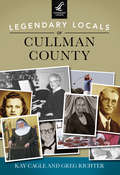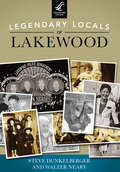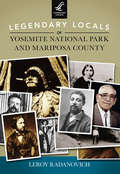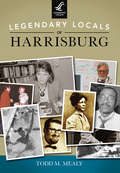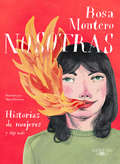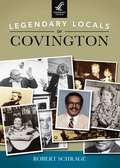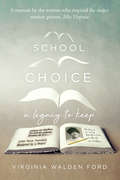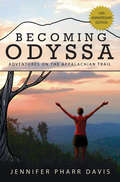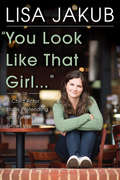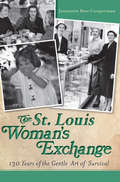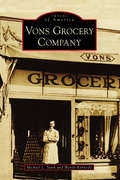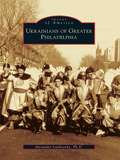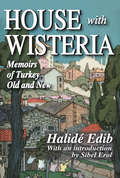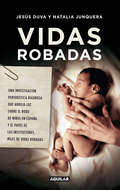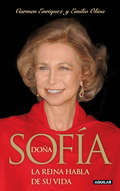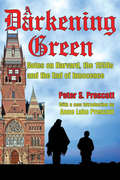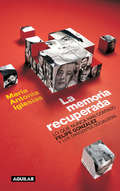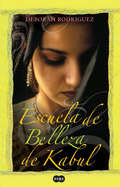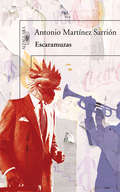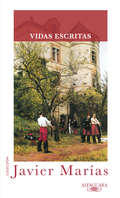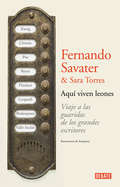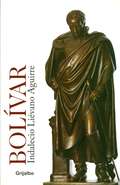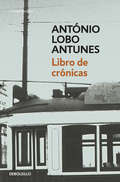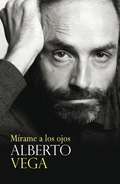- Table View
- List View
Legendary Locals of Cullman County (Legendary Locals)
by Greg Richter Kay CagleIn search of opportunity and freedom from oppression, European emigrants boarded ships, leaving behind their ancestral homes. They carved new lives from the unknown wilderness in the American South. The Speegle family settled in what would become southwest Cullman County, and the Brindley family claimed lands to the north. From the historic Streight's Raid exploit of the Civil War to the agricultural and social development of this region of northern Alabama, these early pioneers marched into history. In 1865, Col. Johann G. Cullmann, who was disillusioned with the anarchism in his native Germany, also sought new opportunity in America, eventually settling in Alabama. After being enticed by Colonel Cullmann's descriptive words of the area's virgin timber and fertile soils, ?ve German families joined him. Encouraged by what they found, optimism flourished, word spread, and Cullman County's destiny was set. Its growth has been constant, and, today, its expansion is propelling the area to new heights of economic prominence.
Legendary Locals of Lakewood (Legendary Locals)
by Walter Neary Steve DunkelbergerLakewood was a vibrant community long before it incorporated in 1996, though cityhood helped give the area one name and identity. In the mid-19th century, Lakewood was the site of British farms and the first US military base in Washington Territory. Men who became famous in the Civil War, such as George Pickett, served there. Native American leader Leschi, the victim of "judicial lynching" by civilians, spent his last days there. As Lakewood became a retreat for Puget Sound's rich and famous, names such as Carman and Alexander--as famous in their day as the name Weyerhaeuser was and is--settled here, leaving behind reminders like Lakewold Gardens. One of Lakewood's most famous residents was Ivan, a captive gorilla who captured the hearts of animal lovers worldwide.
Legendary Locals of Yosemite National Park and Mariposa County (Legendary Locals)
by Leroy RadanovichIn 1846, Thomas Larkin, American council general to the Mexican government in California, purchased a Mexican land grant, Las Mariposas, for Col. John C. Fremont. The grant consisted of 10 square leagues of grazing land located near the Merced River and west of the Sierra. In 1848, when California became the possession of the United States, the treaty called for the recognition of preexisting grants. Gold was discovered in the foothills of the Sierra that same year. Fremont floated his questionable Mexican grant into the gold discovery region. With the formation of the State of California in 1850, one of the original counties was named Mariposa, Spanish for "butterflies." Located within the county was the Fremont grant and much of the yet undiscovered Yosemite region of the Sierra. Encounters with Native Americans near the mining camps lead to the formation of the Mariposa Battalion, and a search for the natives led to the American discovery of Yosemite Valley. Thus, it was custodians and photographers such as Charles Leander Weed, Carlton E Watkins, J.J. Riley, George Fiske, Ansel Adams, and many others that interpreted and introduced Yosemite to the world.
Legendary Locals of Harrisburg (Legendary Locals)
by Todd M. MealyWith images taken from the archives of the Dauphin County Historical Society, as well as family collections, Legendary Locals of Harrisburg encompasses biographical tributes that celebrate the deeds of actors, musicians, artists, teachers, athletes, humanitarians, politicians, veterans, firemen, and community leaders who have added a peculiar brand of Harrisburg's rich cultural tapestry. William Howard Day, an educator, and John Harris, who established Harrisburg, are two pioneers. Edward Stackpole, of Stackpole Books, and Theophilus Fenn, editor of the Telegraph, have forged the way for the city's writers. The first secretary of homeland security, Tom Ridge, and Simon Cameron, secretary of war under Lincoln, are among world-renowned politicians who have contributed to Harrisburg's valued reputation. From rival high school football coaches to dueling business owners, from civic leaders building an integrated city to aspiring young people embarking on independent journeys to the big screen, these profiles of real lives and real heroes show us that we all have contributed to the development of our own communities.
Nosotras. Historias de mujeres y algo más
by Rosa MonteroEdición especial de uno de los libros fundamentales de Rosa Montero, Premio Nacional de las Letras 2017. Una obra pionera en la reivindicación del papel de la mujer en la historia a través de las biografías de sus protagonistas. Ilustrada por María Herreros. Escúchalo ahora «Este libro no es un libro solo para mujeres, de la misma manera que el feminismo no es solo cosa de chicas. Estamos cambiando el mundo, estamos destruyendo estereotipos milenarios, y es evidente que si se altera el papel social femenino, es porque también muda el papel de los hombres. »Incluye el texto original de Historias de mujeres, publicado hace veinticuatro años, y añade noventa nuevos pequeños retratos, una ojeada rápida desde la antigüedad hasta nuestros días que nos permite atisbar la compleja riqueza de la aportación femenina a la vida común. Porque hay una historia que no está enla historia y que solo se puede rescatar aguzando el oído y escuchando el susurro de las mujeres. La porción invisible del iceberg de protagonistas silenciadas empieza a emerger ahora, y tiene unas dimensiones colosales. Ha habido mujeres en todas las épocas haciendo cosas memorables. No hay un solo campo social, artístico o del conocimiento en el que no hayamos destacado. Y se trata de un pasado que nos han robado a todos. »Pero tenemos que hacer algo más que cambiar la visión del pasado: es esencial que también cambiemos la visión del presente. La manera en que nos miramos a nosotras mismas. El mundo, nos decían y nos decíamos, es así. Pero no. Resulta que el mundo no es así. El futuro está aquí, el futuro es hoy y lo estamos construyendo hombres y mujeres. Por primera vez estamos todos. Aunque, para ello, también debamos abandonar nosotras muchos prejuicios sexistas. Así es que, hermanas, abramos nuestras fauces de dragonas y escupamos fuego.»Rosa Montero --------------------------------- La crítica ha dicho sobre Historias de mujeres...«Escribe con el punto casi exacto de acercamiento, con sinceridad y ardor pero sin concesiones fáciles, sabedora de que sus heroínas sufrieron a causa del entorno todo, y no solo de los hombres. Desde esta óptica madura y razonable, la prosa de Montero se nos hace así paradójicamente intensa, creíble, verdadera.»Miguel Dalmau, La Vanguardia «No perseguía un documento de hazañas femeninas ejemplares, solo ejemplos de mujeres que se atrevieron a traicionar las expectativas que la sociedad, durante siglos, depositó en ellas y asaltaron con audacias inéditas los preceptos que asignaban sus funciones.»Pilar Castro, ABC «El deseo de equilibrio entre los sexos late como un pulso en todo el libro de Montero. El mismo deseo que anima los modos de sentir y pensar de una mujer que ansía, en cada lugar, por oscuro y difícil que sea, ver llegar el fin de la prohibición, el día en que cada una pueda modelar su propia forma como un regalo que no temerá.»Teresa Hernández, Diario 16 Andalucía «Una parte de la historia clandestina de las mujeres y sus esfuerzos, muchas veces trágicos, para liberarse de la norma social masculina.»Andrés Fernández Rubio, El País «Interesante muestra, no solo de lo que el género biográfico puede dar de sí abordado con pasión y oficio, también de lo que las mujeres han aportado a la historia o a sus recovecos desde el matrimonio o la rebeldía.»Care Santos, El Cultural «Mujeres que dejaron huella, que hicieron historia. [...] Mujeres con vida propia.»El Tiempo «Queda claro que Rosa Montero, como ella misma resalta, no ha pretendido sublimar la figura de la mujer, ni exaltar a heroínas o señalar víctimas y victimarios, sino mostrar "la humanidad cabal y plena, con todas sus luces y sus sombras", demuj
Legendary Locals of Covington (Legendary Locals)
by Robert SchrageCovington was a natural place for people to settle. Located on the banks of the Ohio and Licking Rivers, it developed quickly as the urban core of northern Kentucky. Sitting just opposite of Cincinnati, Ohio, it was a great location for travel by both animals and people. Originally owned by Thomas Kennedy, the land was ultimately purchased by Thomas Carneal and John and Richard Gano, and thus the city of Covington was founded in 1815. Not long after its establishment, railroads made Covington their home and many other businesses followed. By 1850, it was the second-largest city in Kentucky. Over its 200 years, Covington has seen many people play a role in its history, development, and reputation. Some are great business and community leaders. Others made tremendous contributions to the arts, and some are notorious. A community is defined more by its people than its buildings and streets. The individuals who have lived and worked in Covington provide a colorful insight into its past. From its founding until the present day, these individuals are a fascinating look into the city's history.
School Choice: A Legacy to Keep
by Virginia Walden FordOn a cold winter night in February of 1967, a large rock shattered a bedroom window in Virginia Walden Ford's home in Little Rock, Arkansas, landing in her baby sister's crib. Outside, members of the Ku Klux Klan burned a cross on her family's lawn. Faceless bigots were terrorizing Virginia, her parents, and her sisters–all because her father, Harry Fowler, dared to take a job as the assistant superintendent of personnel for the Little Rock School District. He was more than qualified, but he was black.In her searing new memoir, legendary school choice advocate Virginia Walden Ford recounts the lessons she learned as a child in the segregated south. She drew on those experiences—and the legacies handed to her by her parents and ancestors—thirty years later, when she built an army of parents to fight for school choice in our nation's capital. School Choice: A Legacy to Keep, tells the dramatic true story of how poor D.C. parents, with the support of unlikely allies, faced off against some of America's most prominent politicians—and won a better future for children.
Becoming Odyssa: Adventures on the Appalachian Trail
by Jennifer Pharr DavisAfter graduating from college, Jennifer isn't sure what she wants to do with her life. Through inexperienced and unprepared, she feels drawn to the Appalachian Trail and sets out along on the long-distance footpath that stretches 2, 175 miles from Georgia to Maine. The next five months are the most physically and emotionally challenging of her life—coping with blisters and aching shoulders, hiking through endless torrents of rain and a blizzard, facing unwanted company and encountering tragedy. The trail becomes a modern day Odyssey that tests Jennifer's faith in God, humanity and herself. But even at her lowest points, it provides enduring friendships, unexpected laughter, and the gift of self-discovery. With every step she takes, Jennifer transitions from an over-confident college graduate to a student of the trail. As she travels along the ridges of the ancient mountain chain, she realizes that she isn't walking through nature—she realizes she is part of nature. And she learns that the Appalachian Trails is more than a 2,175 mile hike: it is a journey that will change a person forever.
You Look Like That Girl: A Child Actor Stops Pretending and Finally Grows Up
by Lisa JakubAt the age of twenty-two, Lisa Jakub had what she was supposed to want: she was a working actor in Los Angeles. She had more than forty movies and TV shows to her name, she had been in blockbusters like Mrs. Doubtfire and Independence Day, she walked the red carpet and lived in the house she bought when she was fifteen. But something was missing. Passion. Purpose. Happiness.Lisa had been working since the age of four, after a man approached her parents at a farmer’s market and asked her to audition for a commercial. That chance encounter dictated the next eighteen years of her unusual— and frequently awkward—life. She met Princess Diana... and almost fell on her while attempting to curtsy. She filmed in exciting locations... and her high school asked her not to come back. She went to fancy parties... and got kind of kidnapped that one time. Success was complicated.Making movies, traveling the world, and meeting intriguing people was fun for a while, but Lisa eventually realized she was living a life based on momentum and definitions of success that were not her own. She battled severe anxiety and panic attacks while feeling like she was living someone else’s dream. Not wanting to become a child actor stereotype, Lisa retired from acting and left L.A. in search of a path that felt more authentic to her.In this funny and insightful book, Lisa chronicles the adventures of growing up in the film industry and her difficult decision to leave behind the only life she had ever known, to examine her priorities, and write the script for her own life. She explores the universal question we all ask ourselves: what do I want to be when I grow up?
The St. Louis Woman's Exchange: 130 Years of the Gentle Art of Survival
by Jeannette Batz CoopermanOn the surface, the Woman's Exchange of St. Louis is an exquisite gift shop with an adjacent tearoom--beloved, always packed, the chatter light and feminine, the salads and pies perfect. But the volunteers who run the Woman's Exchange have had enough grit to keep the place going through two world wars, a Great Depression, several recessions, the end of fine craftsmanship and the start of a new DIY movement. The "decayed gentlewomen" they set out to help in 1883 are now refugees from Afghanistan, battered wives and mothers of sons paralyzed in Iraq. Sample the radical changes they have made over the years, as well as the institutions they wisely left alone, like the iconic cherry dress that has charmed generations of women and mothers, including Jacqueline Kennedy and Gwyneth Paltrow.
Vons Grocery Company (Images of America)
by Michael L. Stark Wendy KennedyIn 1906, the downtown area of Los Angeles was fundamentally a small town when Charles Von der Ahe opened his little Groceteria on the corner of Seventh and Figueroa Streets using $1,200 in savings. It was a neighborhood store that catered to the needs of local families, where Von der Ahe pioneered "cash and carry," replacing the "charge and delivery" way of thinking. Its expansion and innovation over the next 90 years was legendary, growing to more than 325 stores and 30,000 employees. This book focuses on the legacy of this great company, its visionary leaders, and its dedicated employees who made it the number one grocery retailer in Southern California.
Ukrainians of Greater Philadelphia (Images of America)
by Alexander LushnyckyUkrainians, originally known as Ruthenians, began arriving in the Philadelphia area at the end of the 1800s. Like all immigrants, they were not spared considerable hardships in their pursuit of the American dream. Finding stable employment was an ongoing endeavor. After work they gathered around their churches, indisputably the centerpiece of their immigrant communities. Here they procured much-needed support from their fellow countrymen. Theirs was a common purpose: to preserve in this new world their cherished customs and traditions. Thus their societies abounded with schools, choirs, bands, dance groups, reading rooms, and church and fraternal organizations. With time, more Ukrainians appeared, with the largest group arriving after World War II to escape the horrors of war-torn Europe and start anew. Ukrainians of Greater Philadelphia documents how each new generation of immigrants added to the kaleidoscope that became the Ukrainian community in and around the City of Brotherly Love.
House with Wisteria: Memoirs of Turkey Old and New
by Halide EdibThis edition of Halide Edib Adivar's Memoirs, prefaced with Sibel Erol's excellent introduction, is important and timely. When stereotypes of women in the Muslim world abound, Halide's memoirs remind us of the courage and dedication of "foremothers" who struggled for emancipation at both personal and national levels. These memoirs open a window on the search for personal expression of a woman caught up in the oppressive dynamics of her polygamous households (parental and marital), and the travails of national liberation and nation-building in Turkey, in which she played an active role. Halide speaks to us with an urgency which now cries out to be heard more than ever.Halide Edib's memoirs are indispensable reading for anyone interested in the history of childhood and education in the late Ottoman Empire. Edib worked to spread public education, instituting schools in Istanbul and in the Arab provinces during World War I. Her account is vibrant and direct, off ering an excellent witness to this critical period during which the Empire collapsed.Halide Edib lived through the most turbulent times in modern Turkish history. Most unusually for a woman of her day, she did so not only as an eyewitness, but as an active political participant. She was on close personal terms with powerful leaders such as Talat Pasha and Ataturk, but retained a critical and independent mind. All this gives her memoirs their unique character. The book provides new light on the Ottoman Empire and the Turkish nation.
Vidas robadas
by Jesús Duva Natalia JunqueraUna investigación periodística rigurosa que arroja luz sobre el robo de niños en España y el papel de las instituciones. ¿Mi hijo murió o me lo robaron? Sus maridos no las creyeron. Pensaron que el dolor por haber perdido a un hijo les hacía sospechar algo imposible: que aquellos doctores, que aquellas monjas sonrientes les habían quitado a sus bebés recién nacidos. Con el tiempo muchas de aquellas mujeres se convencieron de que la desaparición de sus pequeños obedecía sólo a la fatalidad, hasta que una de ellas habló para recordar en voz alta sus dudas y otra madre las compartió desde otra ciudad. El robo de niños en España y el papel de las instituciones en ellos se han venido silenciando en los últimos tiempos por los diferentes gobiernos y por la fiscalía, pero la voz de las víctimas se ha impuesto a la indiferencia y al oscurantismo. Hoy más de milfamilias españolas están convencidas de que les robaron a sus hijos en las clínicas donde los alumbraron. Jesús Duva y Natalia Junquera, reputados periodistas del diario El País, nos ofrecen en Vidas robadas un retrato escalofriante de las tramas de adopción irregular -separación de gemelos, compraventa o exportación de niños- que operaron en España desde el final de la Guerra Civil hasta los años 90, resultado de una documentada investigación periodística que se inició en 1981. Una serie de historias de madres despojadas y de niños robados que luchan por destapar la verdad y por recuperar los pedazos de las vidas que les quitaron impunemente. «Cuando la justicia olvida a las víctimas, deja de ser justicia para convertirse en un instrumento de impunidad. Este libro pone voz y forma a la esperanza de las víctimas».Baltasar Garzón
Doña Sofía: La Reina habla de su vida
by Emilio Oliva Carmen EnríquezDoña Sofía ha contestado sobre su pensamiento vital, sus inquietudes y preocupaciones. La Reina hace de guía del recorrido por su vida que realizan los periodistas Carmen Enríquez y Emilio Oliva. Durante dos largas sesiones, celebradas en el Palacio de la Zarzuela, Doña Sofía ha contestado a más de un centenar de preguntas que los autores le han formulado sobre su pasado, su presente y su forma de afrontar el futuro, sobre su pensamiento vital, sus inquietudes y preocupaciones, así como también acerca de sus gustos y aficiones personales. La Reina no ha rechazado ninguna de las cuestiones planteadas por los dos periodistas y ha abordado asuntos de tanta importancia como sus relaciones con la princesa Letizia, la separación de la infanta Elena, su relación con los medios de comunicación, el futuro de la monarquía en España o su postura ante problemas globales como la pobreza o el terrorismo. Los autores, que han seguido a Doña Sofía durante muchos años en el ejercicio de su trabajo como corresponsales ante la Casa Real, han hablado también con una veintena de personas directamente relacionadas con la Reina para completar un elaborado perfil biográfico que nos acerca a la personalidad de quien ha acompañado en todo momento al rey Juan Carlos en una etapa decisiva de la Historia de España.
A Darkening Green: Notes on Harvard, the 1950s, and the End of Innocence
by Peter PrescottThis is a book about the end of childhood. Much of it is drawn directly from a diary the author kept while he was a bright but insecure freshman at Harvard in the 1950s. From these pages emerges a precise description of the raw, half-understood experience of late adolescence-the anguish and arguments, the rivalry and anxiety about sex, the facile cynicism and desperate fumblings for purpose, the bull sessions held late at night-just as Peter Prescott recorded them only hours after the event. These diary excerpts are contained in a narrative that examines that freshman experience from a vantage point of twenty years. Thus, we are able to look at the past with a double perspective: The exact record, unclouded by memory or nostalgia, of what was said and done is set in a structure that reveals the form of the experience. The result is an ironic, witty, and often moving book. Writing with some compassion and even more asperity, Peter S. Prescott not only captures the conflicts and emotions of a single year, but probes beneath the surface of memory to explore certain tribal customs and rites of passage as they are played out in the classrooms and living quarters of the college. A few famous people-T. S. Eliot and Edith Sitwell among them-play brief parts in this chronicle, but young Prescott's attention was primarily engaged in his struggle with his extravagant roommates and an assortment of eccentric undergraduates.
El tiempo entre suturas
by Enfermera saturadaDespués del espectacular éxito de La vida es suero, vuelve Enfermera Saturada con muchas más historias del día a día de una enfermera en la sanidad pública. Tras conquistar a miles de lectores con su particular visión de los hospitales y del mundo sanitario, Enfermera Saturada, «Satu», nos abre de nuevo una puerta a la trastienda de la enfermería con su segundo libro. Desde las tiritas de dibujos hasta el turismo de oposición en busca de la plaza fija, pasando por los camisones, el esparadrapo y la cafetería del hospital, nada escapa a esta enfermera que recorre todos los días los pasillos del hospital a golpe de tuit. Puedes encontrar a Enfermera Saturada en:Facebook: EnfermeraSaturadaTwitter: @EnfrmraSaturadaInstagram: Enfermera_SaturadaWeb: enfermerasaturada.es Reseñas:«La enfermera escritora que vacuna contra el aburrimiento.»El Mundo «Después de triunfar en las redes sociales, una ingeniosa enfermera española se convierte en escritora superventas.»Amazon.es En los blogs...«Me parecen unos libros bastante imprescindibles tanto si eres profesional enfermero como si no. Son dinámicos, divertidos, rápidos de leer, irónicos en su justo punto e interesantes. Muy interesantes.»Blog Mi estúpida y sensual opinión
La memoria recuperada: Lo que nunca han contado Felipe González y los dirigentes socialistas
by María Antonia IglesiasLa memoria recuperada es una colección de 13 reportajes publicados entre octubre de 2008 y enero de 2009 en La Opinión de Granada por los periodistas Santiago Sevilla y Álvaro Calleja. Lo que nunca han contado Felipe González y los dirigentes socialistas. Estos artículos fueron galardonados con el Premio Andalucía de Periodismo 2009 en su modalidad de Prensa. El jurado de los premios destacó de manera unánime la profunda investigación y el excepcional relato construido por estos dos periodistas que recuperan la memoria de ciudadanos desaparecidos en la provincia de Granada durante la represión franquista. Asimismo, ha subrayado la capacidad didáctica de estos reportajes, que reúnen los ingredientes del mejor periodismo, de cara a las nuevas generaciones.
Escuela de belleza en Kabul
by Deborah RodríguezEscuela de Belleza de Kabul es un admirable relato sobre una extraordinaria comunidad de mujeres que se unieron para aprender el arte de las permanentes, de la amistad y de la supervivencia. Tras la caída del régimen talibán, Deborah Rodriguez, peluquera y madre de dos hijos, viajó a Afganistán como parte de un grupo de ayuda humanitaria. Una vez allí, no sabía muy bien lo que ella podría ofrecer a este país destrozado por la guerra. Pero pronto descubrió que su profesión, más que un obstáculo, era una bendición, y en cuanto se corrió la voz de que una peluquera había llegado a Kabul, todos, occidentales y afganos, querían pedir cita para un buen corte de pelo. Y así nació la idea... Con la ayuda de empresas y patrocinadores internacionales, la Escuela de Belleza de Kabul, con Rodriguez al mando, impartió su primera clase en 2003. Un lugar este en el que superar las barreras culturales y los retos que ofrecía un país en posguerra. Un lugar que se convirtió en refugio para unas mujeres que no sólo aprendieron a peinar y a maquillar, sino también a abrir su corazón y a compartir sus increíbles y, a veces, enternecedoras historias. Fue así como esta peluquera norteamericana encontró fuerzas para romper con un matrimonio enfermizo y encontrar un nuevo amor, esta vez al estilo afgano. Con cariño y humor, Deborah Rodriguez detalla la exuberancia de una región aparentemente desolada y revela la magnificencia que hay detrás del burka en esta conmovedora historia real. Reseñas:«Esta animada crónica autobiográfica está llena de momentos de humor negro, que aligeran el relato de lo cotidiano en un país desgarrado por la guerra. Una lectura amena pero llena de sustancia.»People «Como la propia autora explica con alegría: "Casi nunca me lo pienso antes de hacer algo, sino que simplemente lo hago, por lo general con resultados desastrosos". En otras ocasiones, en cambio, como es el caso de este libro, los resultados no podían haber sido mejores.»Entertainment Weekly
Escaramuzas
by Antonio Martínez SarriónTras Cargar la suerte y Esquirlas, y respaldado por una vasta cultura hecha de múltiples lecturas y permanente atención a la actualidad, Antonio Martínez Sarrión nos trae este tercer volumen de diarios que, como toda visión crítica e independiente de lo que nos rodea, no dejará a nadie indiferente. «Claridad, concisión, elegancia y una punta de humor, en alguna de sus distintas coloraciones, tal vez son el trípode donde se asienta la mejor literatura que jamás se haya escrito.» La observación política más mordaz da paso al más sentido homenaje poético, relevado a su vez por pensamientos atribulados o notas eruditas, antesala de una furiosa denuncia... Apuntes en los que el autor salta con total naturalidad de lo personal a lo social, de la reflexión a la ocurrencia, de las filias a las fobias políticas y literarias, en lo que constituye un libre pero completo panorama de la sociedad actual. Tales pinceladas configuran un fresco vibrante gracias a ese estilo directo, incisivo y mordaz, alejado de toda complacencia, que es marca de su autor y con el que éste desvela sus temores y esperanzas respecto a un futuro incierto, su disidencia ante la superficialidad de las nuevas tecnologías, la injusticia de la Justicia, los absurdos a que dan lugar las luchas de poder... y frente a ello, el refugio que suponen la poesía y las artes, insumisas por no atenerse a la moda.
Vidas escritas
by Javier MaríasVeintiséis breves e irreverentes retratos de grandes escritores que se han convertido en la más divertida, melancólica y fascinante invitación a leer. Faulkner a caballo, Conrad en tierra, Isak Dinesen en la vejez, Joyce en sus gestos, Stevenson entre criminales, Conan Doyle ante las mujeres, Wilde tras la cárcel, Turgueniev, Mann, Lampedusa, Rilke, Nabokov, Madame du Deffand, Rimbaud, Henry James, el gran Laurence Sterne... Hasta un total de veinte genios de la literatura resucitan en estas breves e insólitas biografías, que se leen como cuentos gracias a la precisión, amenidad y elegancia de la prosa de Javier Marías. Todos son extranjeros, todos están muertos y todos han sido tratados como personajes de ficción, con un afecto y una ironía no exentos de profundidad. El volumen se completa con seis retratos de «Mujeres fugitivas», que vivieron y murieron por encima de sus posibilidades, con tanta intensidad como humor. Y lo corona «Artistas perfectos», el contrapunto de las anteriores semblanzas: sus imágenes detenidas prescinden de anécdotas y caracteres para subrayar, en frases como relámpagos, la expresividad de los rostros, ademanes y gestos, espontáneos o artificiales, de los artistas que sólo en la posteridad alcanzan la perfección. Los textos van acompañados de extraordinarios retratos, pertenecientes en su mayoría a la colección del autor. Reseñas:«Cuesta contenerse ante el encanto de estos breves retratos... Exquisitos y astutamente irónicos. Un libro encantador.»Michael Dirda, The Washington Post «Al leerlas, se cae de un modo insólito e inesperado en una sensación de éxtasis.»The Washington Times «Una maravilla que exige lecturas y relecturas.»Antón Castro, El Periódico «Marías es un escritor demasiado diestro como para acometer algo como una tediosa teoría de la biografía. [...] Para Marías los grandes escritores no son enigmas por resolver, pero sí paradojas para saborear. De hecho, muchas de estas "vidas escritas" comienzan con una paradoja.»Christopher Benfey, The New York Times Book Review «Una lectura curiosa y gratificante. La voz segura e irónica de Marías junto con su perspicacia hacen que merezca la pena su lectura.»Jamie Berger, San Francisco Chronicle «Vidas escritas prueba lo cautivador, inteligente y original que es Marías como escritor... El éxito del libro se basa en el estilo y el tono, y Marías, cuyo sello es la precisión socarrona, cumple las expectativas con rigor y garbo.»Sarah Emily Miano, The Observer «Tengo la corazonada de que Vidas escritas, de Javier Marías, será considerado un texto de referencia en la historia de la biografía.»Carl Rollyson, The New York Sun «Marías humaniza a estos autores imprescindibles y entra en su leyenda para contar de ellas cotidianidades e iluminar lados dudosos, mas no banalidades. El resultado es una mejor comprensión de aquellas vidas vistas aquí con "afecto y guasa", y no exentas de ironía.»Winston Manrique, Babelia «Vidas escritas es una autobiografía acerca de otros, un viaje alrededor del cuarto de Javier Marías: en las fotos enmarcadas de las paredes, el autor aparece disfrazado unas veces de William Faulkner y otras de Henry James.»Benjamín Prado, Diario 16
Aquí viven leones
by Fernando Savater Sara TorresUn delicioso recorrido por la obra y los lugares más emblemáticos de ocho escritores fundamentales. El regreso de Savater a su faceta más divulgativa. En Aquí viven leones, Fernando Savater vuelve a una de sus facetas favoritas, la de divulgador de la literatura y el pensamiento. A través de ocho viajes inolvidables, ilustrados magníficamente por Anapurna, nos presenta la obra y la vida de Shakespeare, Valle Inclán, Poe, Leopardi, Agatha Christie, Reyes, Flaubert y Zweig. Son ocho extraordinarias introducciones a sendos autores clave de la literatura universal de muy distintos registros. Un libro maravilloso para entrar en el mundo de estos escritores, conocer su obra y disponer de más claves para poder disfrutarla. Reseña:«Un libro hermoso y bien ilustrado en todos los sentidos.»Luis M. Alonso, La Opinión de A Coruña
Bolívar
by Indalecio Liévano AguirreLa más completa biografía del gran Libertador en las letras de uno delos mejores escritores de historia en Colombia. Atesorado como la mejor biografía del Libertador jamás escrita #y ya soninumerables-, este libro nos invita a mirar de cerca la intensa vida deun hombre excepcional, a la vez soldado, político, escritor, legisladory humanista. Sus épicas batallas, sus ideales, sus tormentosos romances,sus formidables enemigos y sus escasos amigos, su pensamiento, todo estáaquí narrado con impecable maestría. #La esclavitud es hija de las tinieblas, un pueblo ignorante es elinstrumento ciego de su propia destrucción
Libro de crónicas
by António Lobo AntunesEste volumen recoge una selección de las mejores Crónicas que Antonio Lobo Antunes publicó, desde 1993 y durante cinco años, en el periódico portugués O Público. «Al cabo de cinco años colaborando con O Público, y con la certeza constante de que me hacen falta doscientos para las novelas que pretendo hacer, es el momento de abandonar estas pequeñas prosas.» Así ponía fin Lobo Antunes a su labor como cronista periodístico, un legado de relatos, ensayos y diversas misceláneas que conforman un volumen único donde la escritura brilla con luz propia. La vida cotidiana en su Lisboa natal, los recuerdos de su infancia y refl exiones sobre el amor, la soledad, la memoria o la enfermedad jalonan las páginas de este hermoso libro. Un libro imprescindible para completar la imagen de un escritor que rehuye de todo estereotipo, y para comprender mejor su asombrosa obra poliédrica. Reseña:«Alguien podría pensar que estas crónicas no forman parte de las grandes obras maestras que Lobo Antunes nos va proporcionando de tan aplastante manera, que se trata de un libro más "ligero" y menor dentro de su bibliografía, pero desecharlo o no prestarle atención sería un grave error y desconocer sobre todo el sentido de su trabajo.»Rafael Conte, Babelia, El País
Mirame a los ojos
by Alberto Vega SalgadoAlberto Vega, el testimonio de su accidente y su vida posterior En 2006, el reconocido actor y profesor de teatro Alberto Vega sufrió un accidente en bicicleta que conmovió al país entero. El diagnóstico fue severo: la caída le provocó una lesión cerebral que lo llevó a perder la capacidad de movimiento y de habla, lo que se conoce como «síndrome de cautiverio». Sin embargo, Alberto Vega decidió continuar con su vida. Con My Tobii, un equipo computacional que le ayuda a escribir en una pantalla a través del movimiento de sus ojos, pudo comunicarse.Tuvo que superarse a sí mismo, con dificultad y una paciencia infinita, pero logró trabajar de nuevo en teatro, en cine y ahora en las letras. Mírame a los ojos es un verdadero canto a la esperanza y una enseñanza de que todo es posible.
